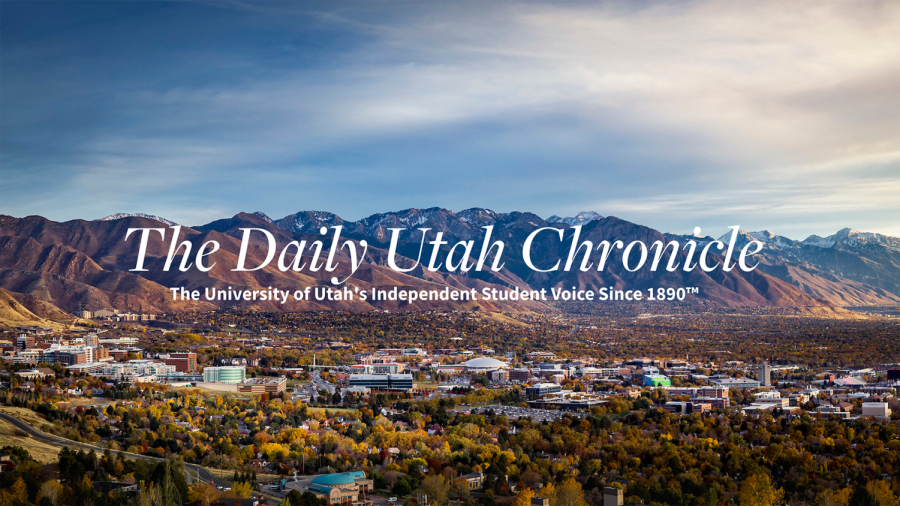Cushman: Let’s Talk About Sex!
May 7, 2022
Utah’s Westminster College has garnered a lot of controversy about an upcoming elective course, GENDER3000, where students will watch and discuss pornography. The planned course has spurred a social media storm, with commentary from famous conservative spokespeople like Candace Owens.
The college has also seen a high volume of phone calls and doxing of some staff members. Some people have even demanded the class’s cancellation, creating a change.org petition. Rather than canceling a course because it sounds controversial, we should create more platforms to discuss tough subjects in safe environments.
I want to acknowledge that having conversations about pornography or sex can be uncomfortable. As many as one-third of adults remain uncomfortable talking about sex with their partners. Growing up in Utah, where sex was an inappropriate topic and questions weren’t always welcome, I, too, have struggled. I experienced discomfort talking openly about sex as an adult, even with partners I trusted. Regardless of my valid feelings of discomfort enforced by the culture I was raised in, avoiding the topic altogether can and does cause harm.
For instance, one survey showed that though many women struggle with vaginal dryness, about 27% of them would rather endure the physical pain of unlubricated sex than talk with their partner about it. Avoiding conversations about sex and assigning it dirty connotations can also nurture deep-rooted sexual shame. These attitudes make sex uncomfortable for those who are ready to have it.
The LDS faith, as an example, focuses on abstinence before marriage and teaches members not to explore their body beforehand. As one couple described in a Salt Lake Tribune article, that meant difficulties connecting with themselves as sexual people after marriage, with the wife detailing how this caused her great insecurity as a newlywed.
Her experience, unfortunately, isn’t unique. Research indicates that sexual shame, in or out of religion, deeply impacts self-esteem. Refraining from having discussions about sex leads to sexual shame, less pleasure from intimacy and more vulnerability to unsafe situations. That only makes it more important that we have venues to accommodate safe conversations about sex, like Westminster’s GENDER3000.
Similarly, avoiding conversations about pornography doesn’t make it go away. It only allows problems with unsafe environments within the porn industry to persist. As sex has become less taboo, viewing pornography too has become more regular. The internet has expedited that process.
Indeed, the market size for adult content in the U.S. has grown, on average, 10.5% each year from 2017 to 2022. It’s a million-dollar industry with more projected growth on the way. With that growth has come a larger impact in how pornography influences its audience. One survey showed that over half of respondents who admitted to slapping, choking, gagging or spitting on partners were influenced to do so by porn.
The issues with the porn industry extend beyond how it influences its viewers. In some cases, the porn uploaded to popular porn sites features nonconsensual sexual encounters and people in the industry have alleged coercion or force. The reality is sometimes porn is consensual and sometimes it isn’t. Sometimes it’s coerced and sometimes it’s not. The things we see in porn almost always influence sex in our real lives.
This makes it critical that we talk about porn, what it says about sex, women and our culture. If we don’t discuss pornography, we won’t ever have conversations about how to make porn safer for the sex workers who participate in it and minimize sexual victimization in the industry. We’ll never be able to acknowledge, let alone change, how we let it influence us.
These examples show us exactly how important it to have classes like Westminster’s GENDER3000, that ask students to question the way we approach sex and porn. Following online controversy, Westminster’s Chief Marketing Officer, Sheila Yorkin, defended the course, saying that Westminster still planned to offer it and establishing the school’s commitment to talking about hard and uncomfortable topics.
Yorkin makes a key point here — college discussions should sometimes be uncomfortable, push boundaries and motivate students to think outside their worldview. Just as importantly, this course will push students to talk about areas of our culture that need change.
Westminster also emphasized that this course remains completely optional. My personal experience with college coursework has not always been convenient or easy. The goal has been to teach critical thought and how to question parts of society, politics, culture, etc. This course is similar. It aims to promote discussion and dialogue about how the porn industry impacts “society, culture and inequality.”
Some people do not want to talk about pornography or sex in the classroom, and they can opt out of it. For students who do want to have those discussions, rather than stop them, we should aim to provide a safe venue for discussion. In these settings, credible professors can act as authorities on the subject and moderate the conversation to ensure everyone continues to learn in that environment. The outrage over this course raises the question: if we can’t discuss porn openly in a college classroom with adults who have consented to the conversation, where can we?








